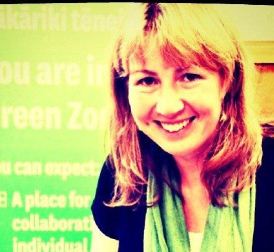 The future-focussed academic library ―must be distinguished by the scope and quality of its service programs in the same way it has long been by the breadth and depth of its locally-held collections.‖ (Walker, 2011). To be successful the design and development of those services have to be shaped and informed by the customers. Services must also be under continual evaluation to measure impact on customers, assess customer satisfaction, and encourage the modification of service in response to evaluation.
The future-focussed academic library ―must be distinguished by the scope and quality of its service programs in the same way it has long been by the breadth and depth of its locally-held collections.‖ (Walker, 2011). To be successful the design and development of those services have to be shaped and informed by the customers. Services must also be under continual evaluation to measure impact on customers, assess customer satisfaction, and encourage the modification of service in response to evaluation.
Like any other customer-centred organisation, the library has a variety of methods at its disposal to gather information from and about their customer, such as usage data, survey results, focus groups, and face to face opportunistic encounters.
Few techniques provide the wealth of information gained from a conversation but provision and popularity of online resource access and self-service options mean that there are now reduced opportunities for face to face contact with customers. Furthermore as all the different parts of the university are expected to be accountable for funding by demonstrating their value students are repeatedly surveyed – as many as 10 times each year according to some estimates (August 2011, Chronicle of Higher Education) Survey fatigue means that both the quantity and quality of responses can be low.
This paper examines the ways in which academic libraries can seek to understand the expectations of their customers, particularly those in minority groups, in order to be able to plan for the future. It does this firstly through a discussion of successful methods for engaging customers, both online and in person, in conversation with particular reference to new generation learners, and the need to demonstrate to participants that their opinions are heard and have an impact.
Secondly the paper attempts to through two case studies of work undertaken at Victoria University of Wellington Library. In the first case the Library sought student participation and input to Te Ropu Whakamanawa, a working group convened to address the needs of Maori and Pasifika academic staff and students.
In the second case the Library undertook a larger process of gathering client and stakeholder feedback as part of a wider ranging ―Library Services for the Future‖ review. The customer engagement was extensive and robust, including 32 focus group sessions with a diverse range of people, and additional online feedback channels for wider University engagement.
From April 2012 Sue Roberts will be CEO and State Librarian of the State Library of Victoria in Melbourne. Prior to moving to Melbourne, Sue Roberts was University Librarian at Victoria University of Wellington in New Zealand and Dean of Learning Services at Edge Hill University in the UK.
Sue was born in Leigh, Lancashire (UK) and studied English at the University of Leicester before postgraduate studies in Library and Information Management. She has worked in a variety of library and learning services roles within the higher education sector.
Sue has also researched and published in the fields of library management and leadership and is the co-author of Managing Information Services (Facet Publishing, 2004), Developing the New Learning Environment (Facet Publishing.
Alison Stevenson is the Associate Director for Technology Services at Victoria University of Wellington Library in New Zealand. She has a background in providing information technology within cultural heritage organisations starting in her native Scotland and moving to New Zealand in 2004. She is a board member of the Library Consortium of New Zealand.
Maureen Gildea, Associate Director of Library Resource Services has worked for Victoria University of Wellington, New Zealand for a period of ten years. Maureen has a BCA (Victoria University of Wellington), major in Management and Human Resources and is currently undertaking her MBA also through VUW.
Prior to working at the University Maureen travelled and worked overseas for a number of years and was based in the UK as a Project Manager for a period of two years.
Maureen also worked in the banking industry (Westpac and National Bank) for a period of 10 years.
As the Associate Director Library Academic Services at Victoria University Ms Rachel Esson is responsible for the library teams that staff service points and provide research, teaching and learning support for staff and students. The Library Academic Services team is the primary communication channel between the library and academic areas. The role is also part of library‘s strategic management team. She has worked in libraries for over twenty years working in a variety of special and academic libraries, including 10 years in a medical library. She has a particular interest in evaluation and evidence based practice. She is actively involved in LIANZA the professional body for librarians in New Zealand having been the convenor of the Health Libraries Special Interest Group and co-convenor of the Tertiary Education Libraries group.
New space at Vic Uni in NZ has a large rug space that students can use and the rug can be booked! #iatul2012 #m122
— Peter Green (@lgreenpd) June 4, 2012
Central surveys at universities are not always the best ones to review and improve existing services #m122 #IATUL2012
— İlkay Holt (@ilkayholt) June 4, 2012
#m122 best practices of survey: per-notification, shorter questionnaires, print vs. online format surveys
— IATUL 2012 (@iatul2012) June 4, 2012
#m122 offering incentives, transparency around outcomes
— IATUL 2012 (@iatul2012) June 4, 2012
#m122 engage users in the designing of services
— IATUL 2012 (@iatul2012) June 4, 2012
#m122 100%survey response rate: how did they do it? They were prison librarians!
— IATUL 2012 (@iatul2012) June 4, 2012



Getting students to tell us what they want on spine labels? Thats’s great. We keep wondering how to arrange our shelves, etc – I mean, spine labels – why not? Keeping people who participate in surveys updated on what is happening with their feedback. It is like a conversation. Isn’t that what engagement and collboration are all about?
It is indeed important for libraries to be proactive in gathering users’ feedback in order to meet the changing needs of their patrons effectively. #iatul2012 #SIngapore @iatul2012
Interesting paper for #iatul2012 #SIngapore @iatul2012